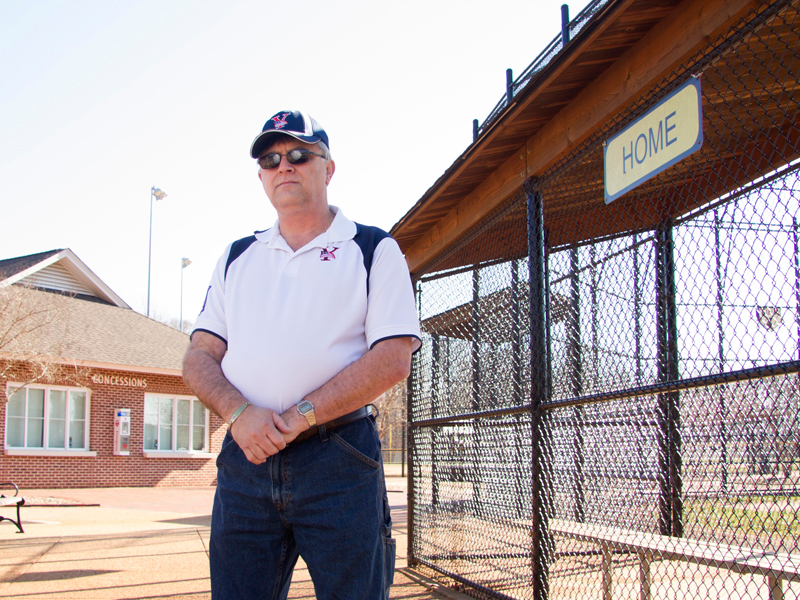Nothing that life has thrown at 56-year-old Rick Small has been stronger than his love for baseball.
Not the Type 1 diabetes that Small has battled since age 16, which can drain his energy and has damaged his eyesight. Not three mild strokes that have slowed his gait and stolen his ability to hit balls for fielding drills, pitch batting practice or run well enough to teach his players to slide. Not the fact that he never had children of his own to groom from the dugout.
Each spring, Small adds another dozen-or-so kids to his baseball family for a new season of York County Little League, where he has been a volunteer coach since 1986. He knows the game. He loves the lessons it can teach about sportsmanship and resilience. And he gets to honor his father, a longtime coach who taught his players the same lessons.
“Baseball is ingrained in me,” Small says.
What I most want to pass on is my attitude about the game. If something doesn’t go right, you take what you’re dealt and go on with it. It’s like life, but it’s also just a game. So come back and try again the next game, the next season. Laugh. Have fun.”
Small aims to stay calm even when his young players inevitably make mistakes. “I always tell them, ‘Just be you. Be the best you. Don’t try to be better than anyone else,’” he says. “And don’t ever think you’re the best, because I don’t care who you are, somebody out there is better.”
One of four brothers born in Florida into an Air Force family, Small played baseball but logged plenty of bench time. He remembers a game when he was 12 and hurled his bat in anger after striking out to seal a loss. As the field emptied, his father made him walk back to the plate, take a final swing and leave with his bat properly in hand.
“It was humiliating, but I really learned from it,” he notes. “I used that once on one of my players.” He also insists his kids leave any disagreements with umpires to their coaches: “To me, anger isn’t part of baseball. I’ve never been thrown out of a game.”
Small began helping his father coach at age 15 and has managed many ages and skill levels in York, where he lives with his wife, Janet. The three years he took off following his strokes, which hit in 1996, 1997 and 1998, were tough on him mentally.
“The strokes took a lot out of me, but it was better for me to get back out there,” he says. Assistant coaches could handle most of the job’s physical demands, he realized, while he could still play ball with his brain. In 2011, Small won his first spring championship with a squad of 9- to 11-year-old boys who scored an upset over the tournament’s top-seeded team.
Small gives himself four to five daily insulin injections to manage his blood sugar and takes medicine to guard against another stroke. He fits practices and games around his job as a licensed land surveyor; his office is full of framed pictures of past teams. “I can get pretty attached to these kids,” he says. “I’ll do this as long as I can.”

